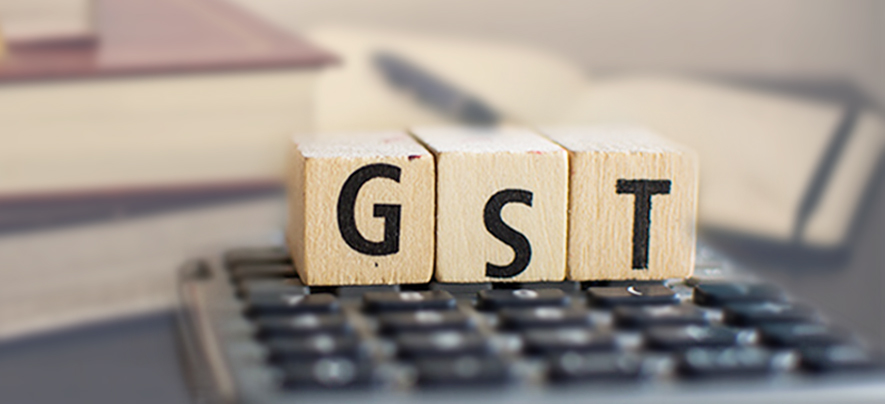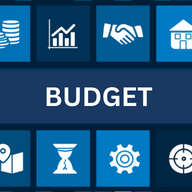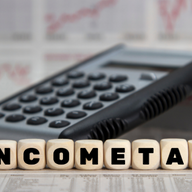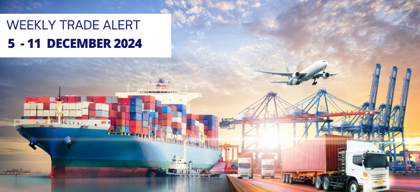Everything you need to know about GST in India

GST
398 week ago — 6 min read
GST is one of the most radical tax reforms in the Indian taxation system after Independence, with a concept of ‘1 Nation and 1 Tax Policy’ being applied for the first time in India. GST enables a platform of uniformity and level playing field across the nation in terms of tax laws and rate of taxes. Additionally, there will be an unbroken chain of input credit of taxes paid on goods and services that will allow a reduction in the final tax burden on the end users.
Here I have answered some frequently asked questions regarding GST.
Q 1. What is GST?
It is a destination based tax on consumption of goods and services. It is proposed to be levied at all stages right from manufacture up to final consumption with credit of taxes paid at previous stages available as setoff. In a nutshell, only value addition will be taxed and burden of tax is to be borne by the final consumer.
Q 2. What type of GST is proposed to be implemented?
It would be a dual GST with the Centre and States simultaneously levying it on a common tax base. The GST to be levied by the Centre on intra-State supply of goods and / or services would be called the Central GST (CGST) and that to be levied by the States would be called the State GST (SGST). Similarly, Integrated GST (IGST) will be levied and administered by Centre on every inter-state supply of goods and services.
Q 3. How will you migrate from existing VAT/ Excise/ Service Tax etc to GST?
The following are the easy steps to migrate from the old tax laws to GST:
a) Obtain your Provisional ID and Password for Enrolment on the GST Portal from the Login Page of your State VAT Portal or the Central Excise/ Service Tax Login Portal
b) Enrol on the GST portal (www.gst.gov.in) by creating your unique username and new password using the Provisional ID and Password already received by the Tax payer
c) Afterwards Login to the GST Portal with the new Username and Password – Fill in the Enrolment Application and provide your business details. Do not miss the mandatory details
d) Verify the Auto Populated details from the State VAT System or Excise/ Service Tax System;
e) Attach the Mandatory Document on the GST Portal
f) Sign the GST Enrolment Application electronically
g) Once the Enrolment Application is reviewed by the GST System and found satisfactory, an Application Reference Number (ARN) will be issued. After receipt of ARN the status of Taxpayer will be changed from Provisional to Migrated till the appointed date i.e. the date of implementation of the GST Act
h) On appointed date the status of your provisional registration will be changed to ‘Active’ and
a provisional Registration Certificate will be issued.
i) On receiving the Active Status, a taxpayer will be able to use the services on the GST Portal
like filling of tax returns, making tax payments, generation of forms etc.
Q 4. Which of the existing taxes are proposed to be subsumed under GST?
The GST would replace the following taxes:
(i) Taxes currently levied and collected by the Centre:
- Central Excise duty
- Duties of Excise (Medicinal and Toilet Preparations)
- Additional Duties of Excise (Goods of Special Importance)
- Additional Duties of Excise (Textiles and Textile Products)
- Additional Duties of Customs (commonly known as CVD)
- Special Additional Duty of Customs (SAD)
- Service Tax
- Central Surcharges and Cesses, so far as they relate to supply of goods and services
(ii) State taxes that would be subsumed under the GST are:
- State VAT
- Central Sales Tax
- Luxury Tax
- Entry Tax (all forms)
- Entertainment and Amusement Tax (except when levied by the local bodies)
- Taxes on advertisements
- Purchase Tax
- Taxes on lotteries, betting and gambling
- State Surcharges and Cesses so far as they relate to supply of goods and services
The GST Council shall make recommendations to the Union and States on the taxes, cesses and surcharges levied by the Centre, the States and the local bodies which may be subsumed in the GST.
Q 5. Which are the commodities proposed to be kept outside the purview of GST? What will be the status in respect of taxation of these commodities after introduction of GST?
Following Items have been left outside the purview of GST:
(i) Alcohol for human consumption,
(ii) Petroleum Products viz. petroleum crude, motor spirit (petrol), High speed diesel, natural gas and aviation turbine fuel
(iii) Electricity
The existing taxation system (VAT & Central Excise) will continue in respect of the above commodities.
To explore business opportunities, link with me by clicking on the 'Invite' button on my eBiz Card.
Disclaimer: The views and opinions expressed in this article are those of the author and do not necessarily reflect the views, official policy or position of GlobalLinker.
Most read this week

















Comments
Please login or Register to join the discussion